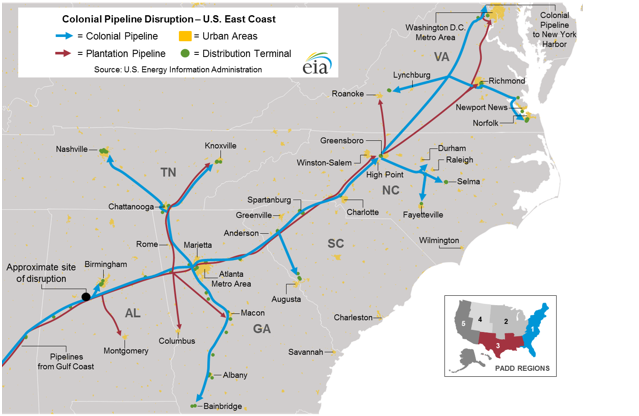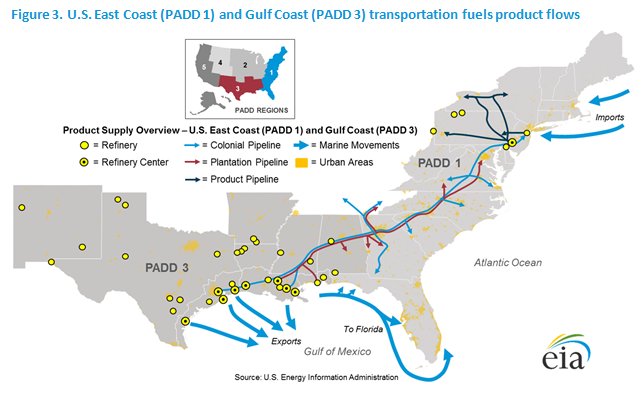Officials in Georgia and South Carolina are enacting measures to alleviate the effects of a cyber-attack on the Colonial pipeline, which forced operations to come to a halt on Friday, May 7, and threatens gas supplies.
Georgia Gov. Brian Kemp signed an executive order Tuesday, May 11, that temporarily suspends the gas tax in Georgia through Saturday, according to a press release from his office. He also announced that Georgia is increasing the weight limits for trucks transporting fuel, providing more supply for stations as they receive deliveries.
MORE: Major East Coast Pipeline Shut Down by Cyberattack
“My office has been in close contact with company and industry officials since we first learned of the Colonial cyber attack over the weekend,” said Kemp in the release. “Unfortunately, extensive media coverage has caused people to panic, which has resulted in higher gas prices. We are taking action to relieve some of the cost burden from Georgians as Colonial recovers by suspending fuel taxes, increasing the weight limit for supply trucks, and prohibiting price gouging.”
State officials say waiving the tax will amount to about 20-30 cents per gallon of price relief.
“We expect these measures to be temporary as Colonial plans to be fully up and running later this week. There is no need to rush to the gas station to fill up every tank you have and hoard gas,” he said. “With the measures we have taken today, I am hopeful we can get more supply to stations and get through to this weekend when we hope Colonial will return to normal.”

The pipeline spans 5,500 miles and delivers 45% of the gasoline and jet fuel supplied to the U.S. East Coast. It spans from the Gulf Coast to the upper East Coast, with smaller pipelines, or “spurs,” branching off at numerous junctures. One such spur leads to Edgefield, S.C.
[adrotate banner=”50″]
South Carolina Attorney General Alan Wilson announced on Tuesday that he has declared an “abnormal disruption in the market” following the hacking of the Colonial pipeline and therefore the state’s price gouging statute is in effect, per a press release.
“I’m urging everyone to be careful and be patient,” Wilson said. “We hope this gas shortage will last just a few days, but we must be wary of individuals looking to unfairly take advantage of the situation through price gouging. According to state law, price gouging constitutes a criminal violation and an unfair trade practice.”
The cyber-attack affecting Colonial is known as a ransomware attack, which means a hacker or criminal group locks out the rightful user of a computer network and holds the network hostage until a fee is paid.
The FBI confirmed on Monday that a criminal group named “DarkSide,” said to originate in Eastern Europe, is responsible for the Colonial pipeline cyberattack.
“The FBI confirms that the Darkside ransomware is responsible for the compromise of the Colonial Pipeline networks. We continue to work with the company and our government partners on the investigation,” the FBI said in a statement.
Tyler Strong is the Business Editor for The Augusta Press. Reach him at tyler@theaugustapress.com.
[adrotate banner=”50″]










